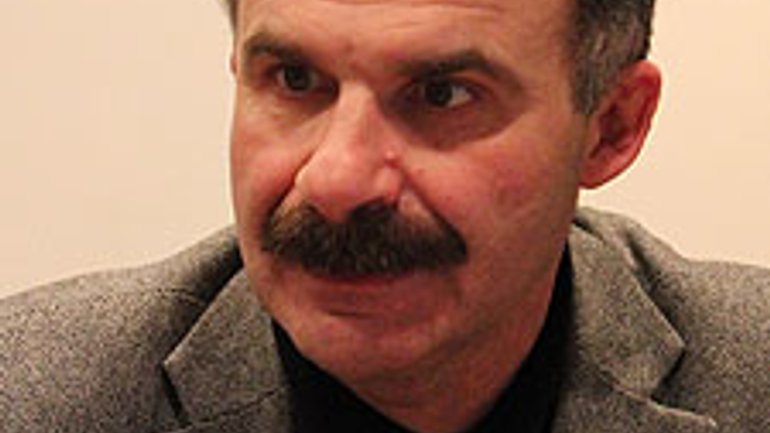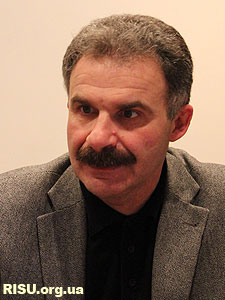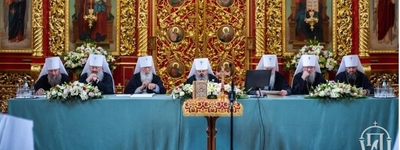Ranking Influence and People of the Church

 The ranking of the most influential people is much more subjective than the ranking of, say, rich people. Influence cannot always be measured in money nor can it be tied to a step in the hierarchical ladder – in the ranking of the one hundred most influential Ukrainians by the magazine Korrespondent rich people sometimes are outranked by less rich people, and a minister may be outranked by a vice prime minister. So I will talk about trends that reflect the ranking – namely, the country's slide toward the dynastic authoritarian regime of personal power, where the Parliament is crushed (its head hopelessly conceded to the heads of customs and taxes) and justice is destroyed. Note: the heads of the Constitutional and Supreme Courts rightly did not make the TOP 100 list – for a long time they have had no influence on anything but obediently stamp the decisions of the presidential administration, the head of which ranked lower than the prime minister and all other government officials. Instead of all these “captains,” the third branch in A. V. Portnov’s ranking is a person who translates the “correct” decisions of the justice officials. The absence of the foreign minister from the ranking says a lot – matters with foreign affairs, pardon the tautology, are extremely bad now.
The ranking of the most influential people is much more subjective than the ranking of, say, rich people. Influence cannot always be measured in money nor can it be tied to a step in the hierarchical ladder – in the ranking of the one hundred most influential Ukrainians by the magazine Korrespondent rich people sometimes are outranked by less rich people, and a minister may be outranked by a vice prime minister. So I will talk about trends that reflect the ranking – namely, the country's slide toward the dynastic authoritarian regime of personal power, where the Parliament is crushed (its head hopelessly conceded to the heads of customs and taxes) and justice is destroyed. Note: the heads of the Constitutional and Supreme Courts rightly did not make the TOP 100 list – for a long time they have had no influence on anything but obediently stamp the decisions of the presidential administration, the head of which ranked lower than the prime minister and all other government officials. Instead of all these “captains,” the third branch in A. V. Portnov’s ranking is a person who translates the “correct” decisions of the justice officials. The absence of the foreign minister from the ranking says a lot – matters with foreign affairs, pardon the tautology, are extremely bad now.
What is the measure of influence within such a regime? Extremely close proximity to the person who has concentrated all power in his hands. And the fact that both sons of Viktor Yanukovych are among the most influential people, and that one of them is in fourth place, is quite natural for this regime.
The ranking does not differ much from the Forbes list – it is densely populated by billionaires and multimillionaires. However, academics as a class are absent (Myroslav Popovych got 89th position as a moral authority rather than as an academic); from writers only Oksana Zabuzhko and from filmmakers only Kira Muratova made the list. This is not an unfortunate omission by the experts, but a reflection of the state of science, literature, and art. A finding, in my opinion, perhaps too pessimistic, but we must recognize that scientific discoveries, if there are any, as well as modern literature and art, are not very inspiring for Ukrainians and do not have much influence on their outlooks, attitudes, and preferences.
The ranking includes four church heads: the head of the Ukrainian Orthodox Church-Moscow Patriarchate (UOC-MP) Metropolitan Volodymyr (23rd place), UOC-KP head Patriarch Filaret (49th), head of the UGCC in 2001-2011 Cardinal Lubomyr Husar (54th), and the current head of the UGCC, Major Archbishop Sviatoslav (62nd).
Of course, observers of religious life may draw attention to the absence from the ranking of Protestant leaders who actually have an influence on thousands and thousands of people and note that the rabbi, who is the guarantor of the agreement between two billionaires from the same Top 100 list and a large number of agreements between the millionaires and multimillionaires, too, should have been counted among the highly influential.
But in any case, the influence of these nominees is difficult to deny – just as is the appropriateness of the higher ranking compared to last year of Metropolitan Volodymyr and much higher ranking of Cardinal Lubomyr.
The former largely regained real control over the church, from which he was almost eliminated, made a series of personnel rotations and assignments, reorganized the Kyivan Metropolitanate, and confirmed the stability of the course of the church. In the summer the UOC-MP marked 20 years of service of Metropolitan Volodymyr as church leader – the celebration was not only to show the hierarch’s determination in defending the scope of autonomy that the UOC-MP has gained, but the unconditional authority of the Primate and firmness of his position. Patriarch Kirill’s participation in the celebrations did not change their overall mood.
The latter has become one of the most active founders of the December First Initiative, potentially a very powerful civic non-party movement, which in the conditions of apathy and frustration with the politicians on the part of Ukrainians had and still retains a real chance to become the intellectual laboratory of social change. After leaving the duties of the head of the church, His Beatitude Lubomyr has been very actively participating in public life – his columns are almost always an event. Furthermore he has succeeded in being very tactical in dealing with his successor. Opinion polls consistently record a high level of trust in the archbishop – the proportion of respondents who in varying degrees trust him is four times more than the proportion of Greek Catholics in the total population of Ukraine.
Although I don’t know exactly what criteria were used to compile the ranking, it seems that they were not only formal, that is, based on the number of parishes, religious buildings, monasteries, clergy, and so on. And not only such informal criteria as proximity to the upper echelon of earthly power, the ability to lobby appointments, “punch” quotas on grain, oil or gas, and the ability to “introduce” into the Parliament some number of MPs.
Perhaps this is trite, but the people of the church who have the most powerful influence on the world do it in a different way than politicians, businessmen or showmen. Because, as wrote Arnold Joseph Toynbee, the church on earth reaches good public goals with much less effort than a secular society, whose motives are aimed directly at the objects themselves and not at something more sublime. Spiritual progress of individual souls in this life guarantees much more social progress than any other process.
Neither Mother Teresa nor Anglican Archbishop Desmond Tutu, Blessed Pope John Paul II and the 14th Dalai Lama Tenzin Gyats, nor El Salvadoran Archbishop Oscar Romero or Protestant Bishop Laszlo Tokes, due to whom the Romanian revolution started in 1989, had “divisions” or banks, but thanks to their influence this world has not turned into hell.










